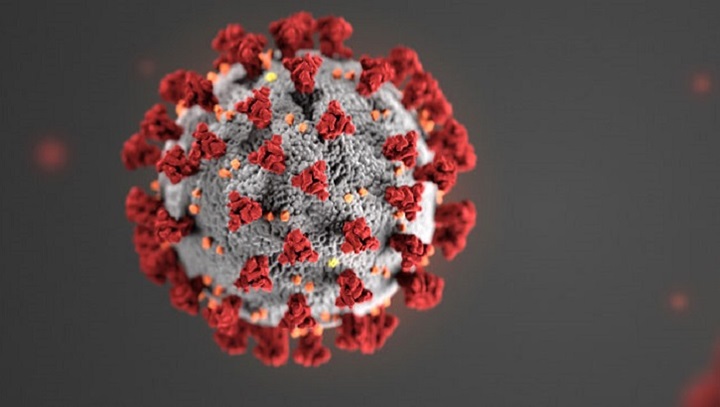Should I Be Worried About the Coronavirus?
The novel coronavirus has figuratively and literally gone viral. Across the globe, numerous countries have enacted travel restrictions, closed schools, implemented quarantines, and declared a state of emergency. As concerns mount and panic sets, you are probably questioning the severity of the situation and asking yourself, “Should I be worried about the coronavirus?”
Unfortunately, the answer is yes. You should worry.
However, there is no need to panic (yet?), but it helps tremendously to stay informed.
What Is a Coronavirus?
 According to the World Health Organization (WHO), coronaviruses (CoV) are “a large family of viruses that cause illness ranging from the common cold to more severe cases such as pneumonia, kidney failure, Middle East Respiratory Syndrome (MERS), and Severe Acute Respiratory Syndrome (SARS).”
According to the World Health Organization (WHO), coronaviruses (CoV) are “a large family of viruses that cause illness ranging from the common cold to more severe cases such as pneumonia, kidney failure, Middle East Respiratory Syndrome (MERS), and Severe Acute Respiratory Syndrome (SARS).”
The name coronavirus is derived from the Latin corona, meaning “crown.” The virus resembles a crown due to the multiple spiky projections on its body.
Coronaviruses are zoonotic (transmitted between animals and people). For example, MERS was transmitted from Dromedaries (camels) to humans and SARS was transmitted from civet cats to humans. COVID-19 has been linked to bats and pangolins.
After transmission to humans, the virus spreads from person to person (when people are within close contact) and via respiratory droplets (i.e. from coughing or sneezing). Symptoms can appear up to an average of 2 weeks after infection.
The novel coronavirus (nCoV) causes Coronavirus Disease 2019 (COVID-19). It is “novel” because it is a new and unidentified strain, originating in the city of Wuhan, China. Due to current events, the terms “coronavirus,” “novel coronavirus,” and “COVID-19” are interchangeable.
As for prevention and treatment, you can refer to the Center for Disease Control (CDC) website or the World Health Organization (WHO) website for more information. Recommendations include washing hands, covering mouths, wearing the appropriate masks, and avoiding sick people, among others. Of all recommendations, washing hands is the most important.
Flu Versus Coronavirus
There are many comparisons between the coronavirus and the flu—mostly due to the fact that they are both respiratory illnesses. More importantly, the symptoms are nearly identical: fever, coughing, shortness of breath, body aches, fatigue, and vomiting, among others.
Many people even assert that the flu kills more people each year, believing that the coronavirus is not as bad as it seems. However, that assertion is irrationally dismissive.
Although they are both respiratory illnesses, the coronavirus and the flu are very different in several key areas:
- Cause: The flu is caused by different strains of influenza viruses. COVID-19 is caused by one virus. It is important to note that coronaviruses are not in the family of flu viruses.
- Differing Mortality Rates: To start, the flu mortality rate is .1%. The coronavirus death rate is estimated to be somewhere between 2 – 3% (hopefully lower once more data is gathered). Simply put, if the coronavirus infects the same number of people as the flu does, then there will be 20 to 30 times the amount of deaths. Based on current infection rates, this is well within the realm of possibility.
- Limited Knowledge: The flu is familiar, making it manageable. The coronavirus is unfamiliar, so the potential for disaster is possible. In fact, there is a guarantee that flu cases will drop around March and April. There is no such guarantee with a new virus. Fear of the unknown is enough to cause widespread concern and/or panic.
- Incubation Period: The average incubation period for the flu (i.e. the time between infection and manifestation of symptoms) is 2 days. The incubation period for the coronavirus can be up to 2 weeks. This means the virus could be spreading like mad and most people would not know.
- Mutation: Since not much is known about the new virus, experts are afraid it could mutate into a more aggressive and virulent strain. Data shows that the virus has already mutated. As a comparison, the first wave of the Spanish flu in 1918 was relatively mild. The second wave was a mutated strain that had the power to kill a healthy adult.
- No Vaccine: Due to mutations, the flu virus is different every year, so an updated vaccine is needed every year. This is why people need to receive flu shots on an annual basis. Understandably, vaccines reduce the number of deaths. But COVID-19 has no vaccine, and there may not be one for another 12 to 18 months (and that is based on a greatly accelerated timeline).
- Immunity: Without previous exposure, the human body has little to no immunity against a new virus. Therefore, the potential for disaster is high when dealing with a new coronavirus.
In the end, people are dying to an unfamiliar virus, so comparisons to the flu (a well-understood virus) are premature. The mortality rate and the number of deaths could be lower—until they are not.
Pandemics and Epidemics of the Past
To gain a better understanding of the current situation, it helps to reexamine the pandemics and epidemics of the past.
Epidemic: The sustained transmissibility (rapid spread) of unfamiliar disease within a region or country.
Pandemic: The sustained transmissibility (rapid spread) of an unfamiliar disease across a very large region (countries and continents).
In simpler terms, epidemics tend to affect a lot of people in one country and pandemics tend to affect a lot of people in several countries/continents.
Most importantly, the keyword is “unfamiliar.” Pandemics are not seasonal. Since the flu is seasonal and well-understood, it is not a pandemic.
During the mid-1300s the Yersinia Pestis bacteria accounted for the death of approximately 30 – 60% of Europe’s population. In the end, the death count worldwide stood somewhere between 75 – 200 million. This event was later known as the Black Death (Bubonic Plague) pandemic.
From 1918 to 1919, the Spanish flu pandemic killed approximately 50 of the 500 million infected (approximately a third of the world population at the time).
From 2002 to 2004, the Severe Acute Respiratory Syndrome (SARS) epidemic killed approximately 774 of the 8000 infected worldwide. SARS was caused by a coronavirus.
From 2009 to 2010, the swine flu pandemic—due to a novel influenza virus (H1N1)—killed 151,700 – 575,400 people (according to the CDC). However, the global mortality rate was very low—at approximately .02%. The amount of people infected was at least 700 million.
Since 2012, the Middle East Respiratory Syndrome (MERS) epidemic has killed approximately 30 – 40% of the 2400 or so infected. MERS was also caused by a coronavirus.
The past pandemics and epidemics are sobering reminders that disaster can strike at any moment. Importantly, each outbreak was different in its own way. This is one of the reasons why COVID-19 is receiving so much attention. Anything can happen, and it could be disastrous if COVID-19 is left unchecked.
Should I Stop Traveling or Going Out?
It depends. Do you like your odds 😂? Are you feeling lucky? There is a 97–98% chance that you will be fine—and that is if you catch the virus.
While certain countries and companies are enacting travel bans, we must maintain composure and realize that these are rational responses to the worst possible outcome. The more you know, the more you can protect yourself and remain calm.
I cannot recommend one action or another, because you are the best judge of your lifestyle. Only you will know how well you can or cannot protect yourself and the people around you. If you feel that the risks are too great, that’s fine. If you feel that you can manage the risks, that’s fine, too (but do note that many countries might enforce strict containment measures).
I have seen people wrap themselves in bubble wrap. I have also seen people go on “coronavirus tours” because flights are cheaper. Now, if you already have or suspect that you might have COVID-19, then you definitely should not travel.
Finally, this is a public issue. We are all in this together, and we must act collectively to promote public health. Even if you believe that you are healthy enough to survive, do realize that others might not survive if you become infected and pass the disease onto them.
Global Response
The WHO has already declared COVID-19 an international emergency. Experts believe that it will only be a matter of time before the WHO declares it a pandemic.
Across the globe, numerous countries are practically shutting down.
China has drastically scaled back its manufacturing, and the country as a whole is experiencing a slowdown as people stay indoors. The quarantine is so severe in China that pollution has actually started to vanish.
Japan and Korea have closed schools.
Saudi Arabia temporarily banned pilgrimage to Mecca.
Even the United States cut interest rates by half a percent between sessions. This has not happened since the Financial Crisis of 2008.
In other words, global authorities are wisely responding to the coronavirus as if it is a high-level threat. There are simply too many unknown factors, and the current trend indicates the potential for a serious pandemic.
Better Safe Than Sorry
So far, global response to COVID-19 has been logical, because there are strong reasons why most countries are alarmed:
- Infection and Death Rate Rate: The current coronavirus is far more infectious than SARS and MERS (coronavirus-related diseases in the past). Despite a lower mortality rate, COVID-19 has, in a matter of months, killed more people than SARS and MERS combined by simply infecting more people. Worst of all, the infection rate increases exponentially. This means that 10 can very quickly become 10000 (or more) in a matter of weeks. Sometimes, there are no clear patterns to exponential increases.
- System Overload: Even if the virus has a mortality rate of just 1%, this is 10 times the mortality rate of the flu. This is a massive problem because hospitalization rates will be much higher. Worldwide, hospitals will be completely overwhelmed. In fact, Italian hospitals are already overwhelmed. Overloading the system means that many other medical conditions will not receive proper treatment. Simply put, the effects of the coronavirus will easily spill into other areas.
- Silent But Not Too Deadly: Furthermore, COVID-19 is less deadly compared to MERS and SARS. On the surface, this seems like a good thing. However, according to experts, high mortality rates prevent the rapid transmission of disease, because hosts often die quickly before infecting others (as morbid as that sounds). In other words, the virus is deadly but not too deadly, making it very easy to spread. It is very hard to determine what could happen because the virus could mutate into a virulent strain or maintain course and infect more people.
- Potential Global Disaster: Compared to some pandemics of the past, the potential for global catastrophe is certainly there. The coronavirus infects at a rapid rate. It is silent but not too deadly. It mutates. There are no vaccines, and vaccines cannot be distributed on a wide scale until 12 to 18 months in the future (again, that is already much faster than usual). It could be under control—until it is not.
In the best-case scenario, a cure is found, the infection and death rates drop, and the virus is fully contained. In the worst-case scenario, this virus spreads rapidly around the world and many lives are lost.
Even if we know nothing—and ESPECIALLY if lives are at stake—better safe than sorry is a very logical response.
For example, if your car has a 2% chance of exploding when you turn it on, would you still try? Even a 1% chance of death seems very high when your life is at stake. In terms of data, it might not seem so bad.
In the end, most of the worry comes from a fear of the unknown. As time passes, this virus might be fully and easily contained.
However, we may never know for sure why containment was successful. Maybe the virus was never a big deal and the world overreacted. Or maybe it was indeed a very big deal, but the world was prepared to stop it (i.e. reacting just the right amount).
As the saying goes, hindsight is 20/20. Actually, in this case, hindsight is 2020.



 © Copyright - Ace Adventurer
© Copyright - Ace Adventurer © Copyright - Ace Adventurer
© Copyright - Ace Adventurer © Copyright - Ace Adventurer
© Copyright - Ace Adventurer © Copyright - Ace Adventurer
© Copyright - Ace Adventurer © Copyright - Ace Adventurer
© Copyright - Ace Adventurer © Copyright - Ace Adventurer
© Copyright - Ace Adventurer
I still don’t see why some of the reactions are so extreme, they are basically shutting down schools and quarantining millions of people. People aren’t even traveling as much now. For what? It has flu-like symptoms right? Nobody is shutting down schools and travel because it’s flu season. Don’t millions die every year from the flu?
Did we read the same thing? Ace literally outlined the reasons why the flu and the virus are different. There’s just so much that we don’t know. I don’t know how people can be so nonchalant about people dying. What’s the point of even comparing? The world is messed up as is. Another virus that kills people just makes things a lot worse smh.
The world health organization just declared it a pandemic. I agree that the thing has the potential to be very bad as well. Italy on lockdown means it’s very serious. Most of the experts think it’ll be worse than the flu, but ignorant people keep makin the comparisons. The United States is too greedy and our healthcare is sh*t. Gonna be a clusterf*ck for sure. We’re doomed.
This piece is spot on. Pretty much everything you said cane true.
I for one think that people who think it’s “just like the flu” are part of the problem. They’re going to make it worse on everyone else because they’re the weakest link.
I’m fine with natural selection weeding them out. So be it, but this disease affects even those who understand the risk and are trying to prepare for it. There will never be a vaccine for abject stupidity.
Yes! I’m been saying this for weeks! This is very thorough and well-research! Thank you for bringing this to attention!
People keep saying it will go away in warmer season like the flu, but NO coronavirus has gone away in less than a year’s time. The timeline shows that SARS and MERS lasted at least a WHOLE year, but this crazy thing has surpassed all others coronaviruses in infection rate and it still has many months to go.
Sooo…is no one going to talk about how this dude is straight using Pokémon memes? What a legend.
Side note, excellent article!
I like that I am learning information that is not being conveyed by the media. I can tell there was a lot independent research that was done that may be intentionally left out by the media. Anyone wanting to truly understand this virus, needs to give this article a read. I appreciate the recognition that there is no need to panic yet, but to be proactive. I think one has to recognize how serious this is by observing the RESPONSE from countries or officials to what is happening.
We are doing our best to stop this so ,hopefully, enough is being done to, at the minimum, contain the virus.
Great article, Ace.
Wow, just wow. This is one of the most comprehensive articles on the coronavirus I have ever seen. Your message is clear, and your sources are top-notch.
I’ve seen some newspapers just putting half-assed articles out there or breaking their content into numerous articles for clicks and views. I know you put a lot of time into this because it’s so well-made.
I never even thought about this system overload thing. I don’t think other articles even mention that, but it makes so much sense. It seems that the coronavirus will indirectly cause other types of illnesses to be more potent simply by overloading the system. More people will be dying of unrelated illnesses simply because everyone is so busy trying to curb this outbreak.
I was in the “it’s not so bad” camp too, the reaction from other countries have convinced me otherwise.
I’m just kind of worried. What do the governments of the world know that we don’t? What are they not telling? The number infected hasn’t even reached anywhere near the numbers of other diseases or ailments, but the reaction has been INSANE.
I know you’re trying to inform us, but your data and evidence is seriously starting to worry me.
What would you even know about the coronavirus? sounds like an overreaction to me. Shutting down economies for what a virus that kills less than heart disease, cancer, or diabetes? I’m gonna say it. It’s killing even less than the flu. The sooner the media cuts this sensationalist crap out the better so we can go back to work.